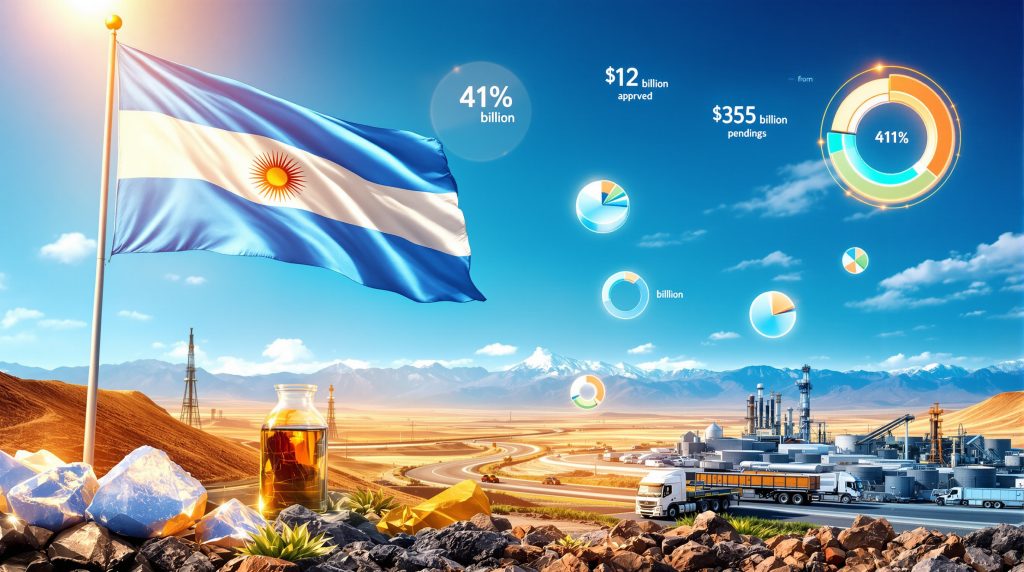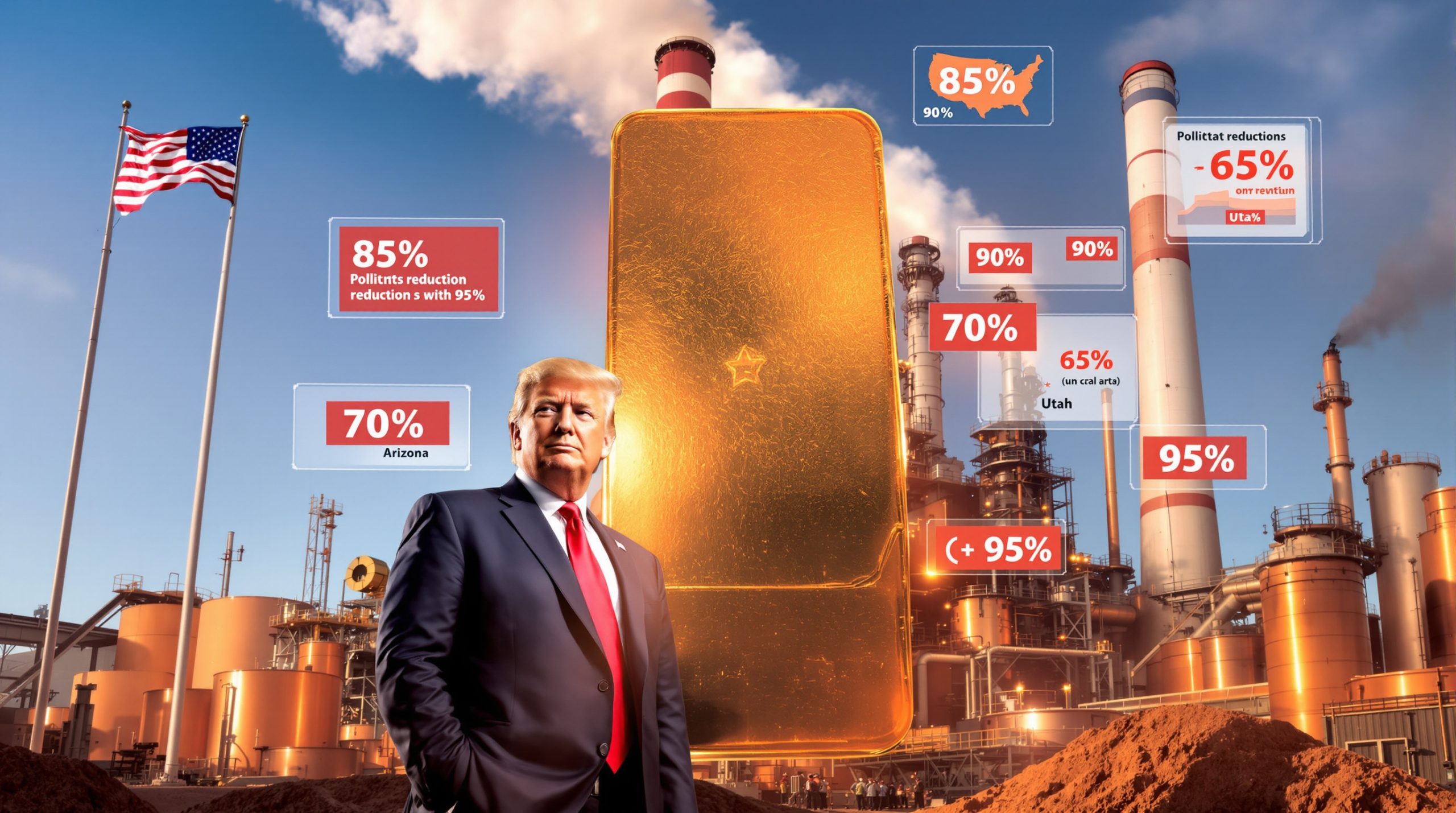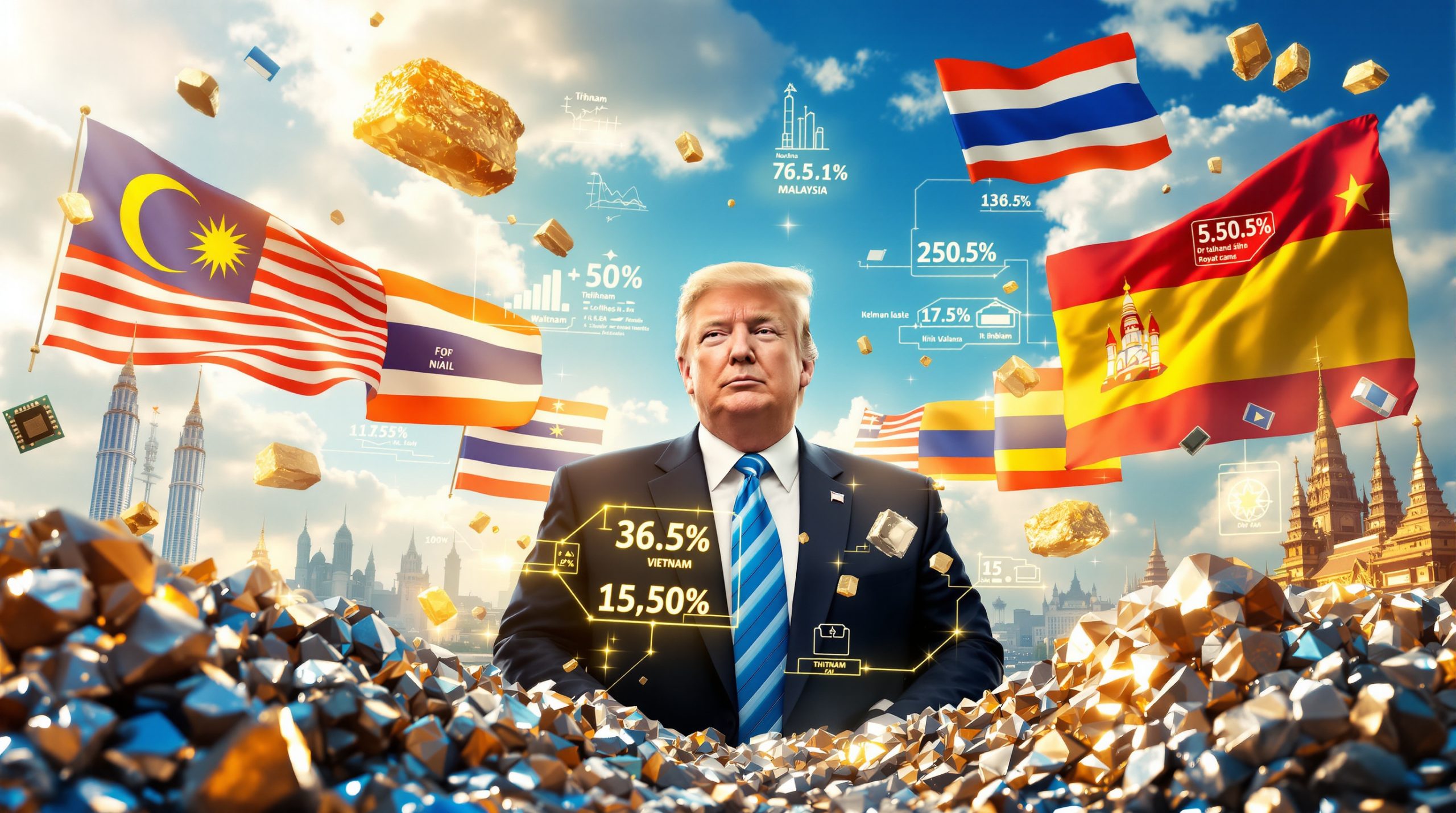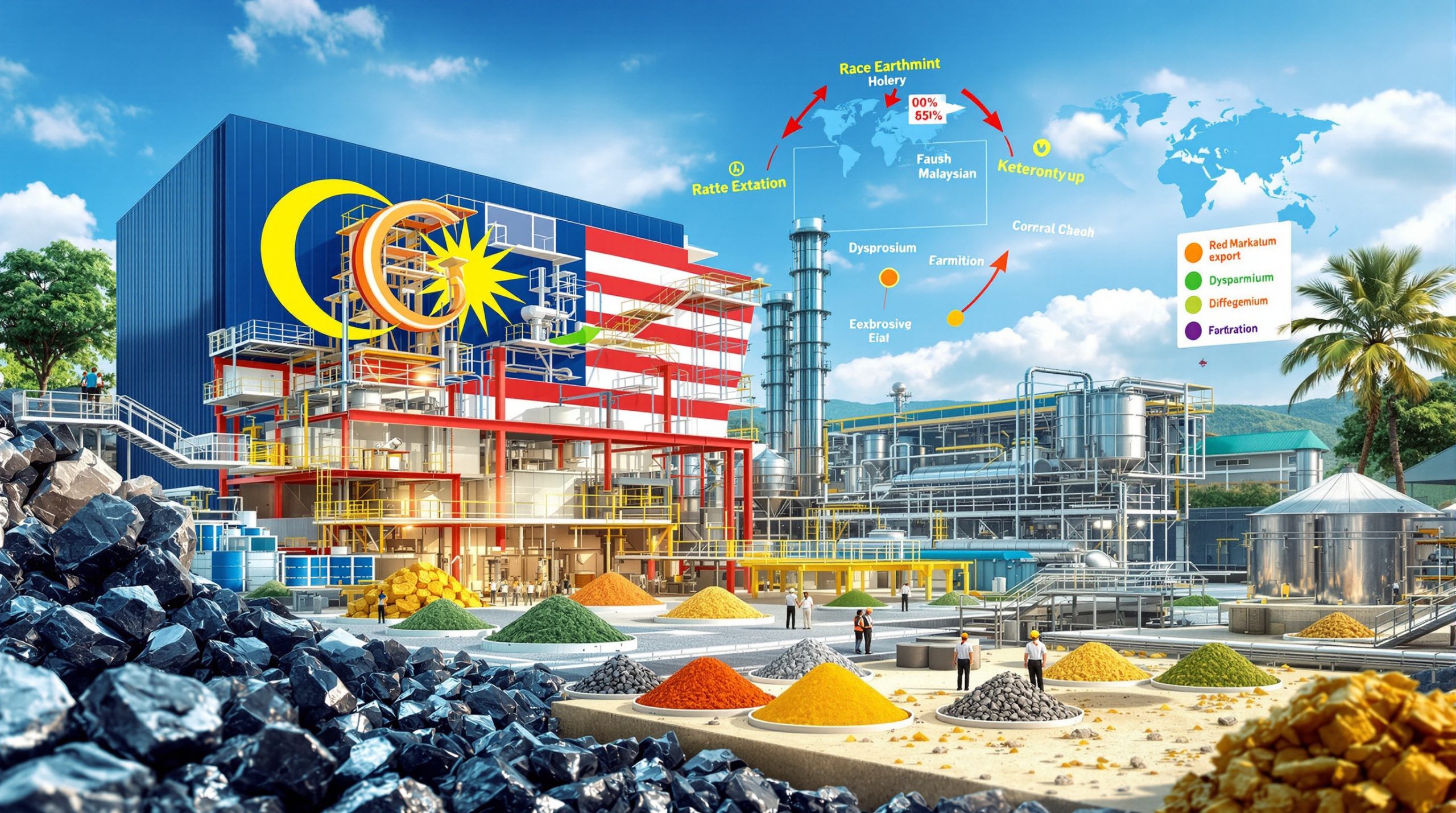Political Transformation Drives Argentina Toward Economic Reform
Argentina's political landscape underwent a dramatic transformation following the Argentinian president's party win in the October 2025 midterm elections, fundamentally altering the nation's economic trajectory. President Javier Milei's La Libertad Avanza achieved a commanding 41% of the national vote, establishing unprecedented leverage for implementing structural reforms across commodity sectors and investment frameworks.
The electoral outcome represents more than a political victory—it signals Argentina's potential emergence as a major player in global commodity markets. With vast natural resources including unconventional oil reserves, substantial lithium deposits, and agricultural capacity, the country stands positioned to capitalise on international demand for critical materials and energy exports.
Strategic Electoral Victory Creates Policy Momentum
Electoral Performance Demonstrates Broad Support
La Libertad Avanza's decisive performance established clear political dominance across Argentina's diverse provinces. The party secured victories in over half of the nation's 23 provinces, including the strategically important Buenos Aires province where they achieved a remarkable 21-point margin—a complete reversal from their 14-point defeat just weeks earlier in September provincial elections.
Key Electoral Metrics:
- National Vote Share: 41% (La Libertad Avanza) vs 32% (Fuerza Patria)
- Chamber of Deputies: 64 projected seats from 127 contested positions
- Geographic Reach: Victories across energy-rich and mining-intensive regions
- Vote Counting: Nearly 100% completed at time of reporting
The electoral turnaround stemmed from multiple converging factors that resonated with Argentine voters seeking alternatives to traditional economic policies. Currency stabilisation measures, supported by external financial backing, helped restore confidence in peso stability during the critical pre-election period.
External Financial Support Proves Decisive
President Donald Trump's strategic involvement through a $40 billion credit facility proved instrumental in securing electoral success. The facility, extended specifically to prevent peso depreciation in the weeks preceding the vote, carried explicit conditions linking continued support to La Libertad Avanza's electoral performance.
The credit arrangement represents unprecedented U.S. engagement in Argentine domestic politics, with financial support directly tied to electoral outcomes rather than traditional economic conditionality frameworks.
This approach differs markedly from conventional International Monetary Fund arrangements, where financial assistance typically follows established economic reform protocols rather than political electoral requirements. Furthermore, this development aligns with broader trends in trump's mineral order affecting global resource markets.
Legislative Authority Enables Structural Reforms
Parliamentary Mathematics Support Reform Agenda
The electoral victory provides La Libertad Avanza with sufficient legislative strength to advance previously stalled reform initiatives. Combined with allied parties, the government now possesses adequate seats to prevent presidential veto overrides, requiring 86 votes in the 257-member lower house to block such actions.
Legislative Control Benefits:
- Veto Prevention: Control over approximately 33.5% of Chamber seats
- Reform Acceleration: Reduced procedural obstacles for structural adjustments
- Policy Continuity: Enhanced ability to maintain consistent economic direction
- Coalition Management: Strengthened negotiating position with allied parties
Investment Incentive Program Gains Traction
The Rigi (large-scale investment incentive program) stands to benefit substantially from increased political stability and legislative support. Current approved projects represent nearly $12 billion in committed capital, with substantial additional investments awaiting approval.
Rigi Program Current Status:
| Project Category | Approved Projects | Investment Value | Pending Applications |
|---|---|---|---|
| Energy Infrastructure | 3 projects | $4.2 billion | 8 applications |
| Mining Operations | 2 projects | $3.1 billion | 7 applications |
| Industrial Manufacturing | 2 projects | $2.8 billion | 4 applications |
| Renewable Energy | 1 project | $1.9 billion | 3 applications |
| Total | 8 projects | $11.9 billion | 22 applications ($35 billion) |
The program encompasses diverse sectors including oil pipelines, LNG facilities, copper and lithium mines, steel mills, and renewable energy installations. Administrative processing of pending applications accelerated following the electoral outcome, with reduced political uncertainty encouraging faster approval timelines.
Commodity Sector Development Accelerates
Oil and Gas Production Expansion
Argentina's Vaca Muerta formation represents one of the world's largest unconventional hydrocarbon resources, containing an estimated 16 billion barrels of crude oil and 308 trillion cubic feet of natural gas. The electoral victory in Neuquen province, where Vaca Muerta is located, provides strong regional support for accelerated development.
Current Production Performance:
- September 2025 Oil Output: 842,000 barrels per day
- Annual Growth Rate: 13% year-over-year increase
- August 2025 Gas Production: 158 million cubic metres daily
- Export Infrastructure: New facilities planned in Rio Negro province
State-owned YPF anchors the expansion strategy with ambitious targets including 1 million barrels daily crude exports and 30 million tonnes annually of LNG by 2030. These objectives require substantial infrastructure investment and continued political stability to maintain long-term development commitments.
The unconventional nature of Vaca Muerta resources necessitates hydraulic fracturing technology and significant capital infrastructure. Production curves typically extend 20-30 years per well, requiring sustained investment and stable regulatory frameworks to maximise resource recovery. Consequently, these developments could influence broader oil price movements in global markets.
Lithium Mining Opportunities Expand
Argentina holds the fourth-largest proven lithium reserves globally at 4 million tonnes, concentrated primarily in northern provinces including Salta and Jujuy. The electoral success in these lithium and copper-rich regions creates favourable conditions for accelerated mining project development.
Strategic Lithium Positioning:
- Global Ranking: Fourth worldwide in proven reserves
- Reserve Volume: 4 million tonnes (U.S. Geological Survey data)
- Geographic Concentration: Northern provinces within "Lithium Triangle"
- Market Demand: Driven by battery electric vehicle and energy storage growth
Lithium market insights indicate that extraction in Argentina operates within the broader South American "Lithium Triangle" encompassing Argentina, Bolivia, and Chile. Global demand continues expanding driven by battery electric vehicle production, grid-scale energy storage deployment, and electronic device manufacturing requirements.
However, specific current production volumes and capacity utilisation rates remain unclear from available sources, requiring additional market analysis to assess Argentina's competitive positioning relative to established producers like Australia and Chile.
U.S. Strategic Partnership Reshapes Economic Alignment
Financial Support Framework Extends Beyond Emergency Assistance
The $40 billion credit facility represents more than emergency liquidity support—it establishes a strategic partnership framework linking Argentine economic policy with U.S. geopolitical objectives. Milei's libertarian vision wins big in Argentina has fundamentally changed the country's international positioning, differing significantly from traditional multilateral lending mechanisms through organisations like the IMF.
Partnership Components:
- Credit Facility: $40 billion emergency support for peso stability
- Trade Enhancement: Proposed quadrupling of Argentine beef imports to U.S.
- Geopolitical Alignment: Commitment to U.S. foreign policy coordination
- Investment Promotion: Facilitation of American capital in Argentine projects
Bilateral Trade Expansion Opportunities
President Trump's stated objective to quadruple Argentine beef imports creates substantial market opportunities for the country's agricultural sector. This expansion would operate through Tariff Rate Quota (TRQ) modifications under U.S. trade authority, potentially requiring broader bilateral trade agreement negotiations.
Current beef trade volumes and tariff structures lack detailed public disclosure, making precise economic impact assessment challenging. However, expanded quota access could significantly influence domestic Argentine cattle markets and production capacity allocation between domestic consumption and export markets.
Argentina's alignment with U.S. foreign policy contrasts sharply with previous administrations' diversified international positioning, prioritising bilateral engagement over regional South American integration mechanisms.
Implementation Challenges Remain Despite Electoral Success
Labor Market Reform Faces Institutional Resistance
Labour law restructuring represents one of the most politically sensitive elements of the reform agenda. Organised unions maintain significant social mobilisation capacity and have historically demonstrated effective resistance to labour market liberalisation attempts.
Previous Argentine governments experienced substantial opposition when implementing similar reforms, with some initiatives subsequently reversed through political change. The current administration's enhanced legislative position provides improved procedural advantages, but does not eliminate organised resistance capacity.
Reform Implementation Obstacles:
- Union Opposition: Established interest groups with mobilisation capacity
- Provincial Coordination: Managing 23 provinces with varying political alignment
- Infrastructure Constraints: Capacity limitations for rapid project scaling
- Social Expectations: Public anticipation for immediate economic improvement
Economic Fundamentals Require Sustained Attention
Despite political gains, Argentina continues confronting fundamental economic challenges including inflation management, debt restructuring, and currency stability maintenance. The Argentinian president's party win creates expectations for rapid improvement that may prove difficult to fulfil given structural economic constraints.
Critical Economic Monitoring Indicators:
- Monthly inflation rates and directional trends
- Foreign currency reserve levels and adequacy ratios
- Export revenue growth across commodity sectors
- Investment project completion timelines and milestones
Specific current data for inflation rates, debt levels, and foreign currency reserves as of October 2025 remains unavailable from accessible sources, limiting precise assessment of baseline economic conditions.
Regional Commodity Market Integration Potential
Infrastructure Development Creates Spillover Effects
Argentina's renewed political stability could catalyse broader regional commodity market integration, particularly in energy and mining sectors. Enhanced infrastructure development may establish new export corridors benefiting neighbouring countries and creating economies of scale for regional producers.
Regional Integration Benefits:
- Energy Security: Enhanced supply reliability for regional partners
- Infrastructure Sharing: Cross-border pipeline and transportation corridors
- Market Competition: Increased global supply affecting pricing dynamics
- Trade Agreements: Potential renegotiation of regional commercial arrangements
Global Market Price Implications
Argentina's potential to significantly increase commodity exports may influence global pricing dynamics, particularly in lithium, beef, and natural gas markets. However, meaningful production increases require substantial time frames and sustained investment, limiting near-term market impact.
The timeline for achieving export targets remains uncertain given infrastructure requirements, regulatory approval processes, and capital deployment schedules. YPF's ambitious 2030 targets for oil and LNG exports represent aspirational goals rather than guaranteed outcomes. Additionally, these developments could affect broader trends in iron ore trends and other commodity sectors.
Investment Considerations and Risk Assessment
Key Performance Indicators for Market Participants
Successful policy implementation depends on measurable progress across multiple dimensions. International investors and commodity market participants should monitor both quantitative metrics and qualitative policy developments to assess progress toward reform objectives.
Critical Tracking Metrics:
- Rigi Program: Approval rates and implementation timelines for pending projects
- Foreign Investment: Direct investment inflow volumes and sectoral distribution
- Export Performance: Revenue growth by commodity sector and geographic market
- Infrastructure Development: Pipeline, port, and processing facility completion milestones
Risk Factors Require Ongoing Evaluation
Despite positive electoral outcomes, Argentina's investment environment retains inherent risks requiring careful evaluation. Political stability improvements must be weighed against ongoing economic challenges and external market conditions beyond government control.
Investment Risk Categories:
- Commodity Price Volatility: Exposure to global market fluctuations affecting export revenues
- Implementation Capacity: Administrative and technical constraints on reform execution
- Social Resistance: Potential opposition to structural reforms affecting key constituencies
- External Dependency: Reliance on continued U.S. financial and political support
International commodity price movements, particularly for oil, gas, and lithium, will significantly influence Argentina's economic performance regardless of domestic policy effectiveness. External financing dependency creates additional vulnerability to shifts in U.S. political priorities or global economic conditions. Furthermore, developments in gold price analysis demonstrate how precious metals markets continue evolving amid global uncertainty.
Economic Transformation Timeline and Expectations
Near-Term Policy Implementation Priorities
The administration faces immediate pressure to demonstrate tangible progress on reform commitments while managing complex economic stabilisation requirements. Success in initial implementation phases will influence sustained political support and continued external financial backing.
Legislative action on labour and tax law changes represents the most immediate test of enhanced political authority. The government's ability to navigate union opposition and provincial government coordination challenges will indicate broader reform capacity.
Medium-Term Commodity Sector Development
Achieving meaningful increases in oil, gas, and lithium production requires multi-year investment cycles and infrastructure development. The 2030 export targets established by YPF and other state entities provide benchmarks for measuring progress, but remain subject to global market conditions and sustained political stability.
Development Timeline Considerations:
- Infrastructure Projects: 3-5 year construction periods for major facilities
- Mining Operations: 2-4 year development cycles for new extraction sites
- Regulatory Approvals: 6-18 month processing periods for major investments
- Market Integration: 1-3 years for establishing reliable export channels
Conclusion: Argentina's Pivotal Economic Moment
The Argentinian president's party win represents a fundamental inflection point in the nation's economic trajectory and international positioning. La Libertad Avanza's electoral triumph, supported by unprecedented U.S. financial backing and blessed with abundant natural resources, creates conditions for substantial commodity sector development and foreign investment attraction.
Success ultimately depends on the administration's capacity to translate electoral mandates into effective policy implementation while managing complex challenges of economic transformation. The combination of domestic political authority, external financial support, and resource endowments provides Argentina with opportunities unavailable to most developing economies.
For global commodity markets, Argentina's evolution from economic uncertainty toward potential stability represents a significant supply-side development worthy of sustained attention. The country's lithium reserves position it strategically within critical mineral supply chains, while Vaca Muerta's hydrocarbon resources offer substantial energy export potential.
However, realising this potential requires navigating substantial implementation challenges including labour market resistance, infrastructure constraints, and social expectations for rapid improvement. Argentina's president scores a resounding victory in these crucial midterm elections, yet the administration's performance in managing these competing pressures will determine whether this electoral victory translates into sustainable economic transformation or represents another chapter in Argentina's history of unrealised potential.
The coming months will prove critical in establishing whether political momentum can overcome structural obstacles and deliver the economic transformation promised to Argentine voters and anticipated by international markets.
Ready to Capitalise on Argentina's Commodity Transformation?
Discovery Alert's proprietary Discovery IQ model delivers real-time notifications on significant ASX mineral discoveries, empowering subscribers to identify actionable opportunities as commodity markets evolve. Begin your 30-day free trial today and position yourself ahead of market movements with instant alerts on discoveries across critical minerals, energy, and exploration sectors.




